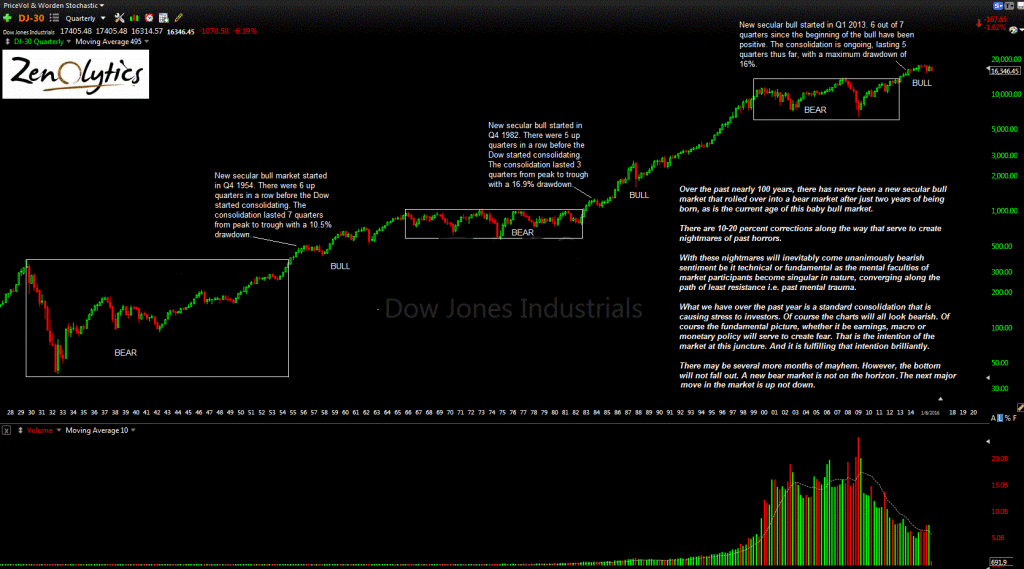If you were to look at any multi-year chart this weekend, much like every other individual performing the same function, you would have no choice but to arrive at a bearish conclusion. If you were to look at any fundamental data points, much like every other individual performing the same function, you would also have no choice but to arrive at a bearish conclusion. In other words, the present market environment is painting as bearish a picture as it ever has during the entirety of this secular bull market.
The fact that there is a singularity taking place along the same line of negative thinking doesn't legitimatize the prevailing psychology. In fact, it should cause investors to question it profusely. In a market environment that is presently blanketed in bearish sentiment there is only one course to take.
In the spirit of profuse questioning of the prevailing negative psychology I decided to forget about daily chart looking back over the past several years, instead focusing my attention on nearly 100 years of data. The question I want to answer is has there been precedent in the past for a new bull market (the current secular bull started in 2013, marked by a new high in the S&P 500) to reverse course into a bear market after just two years?
The answer in the chart below is based on only two long-term secular bull markets. The secular bull from 1955-1965 and the secular bull from 1982-2000. Both of these secular bull market were preceded by a decade plus long consolidation, much like we experienced in the S&P 500 from 2000-2013.
click chart to enlarge
Much like the secular bull market of the 90s, which experienced multiple macro shocks from Asia, Russia, Mexico etc. this current bull market is not immune from sympathizing with the plight of emerging market difficulties. That sympathy should not be confused with similarity. There are no similarities between the Chinese, Brazilian or Russian economies and the U.S. economy presently.
The dips in the U.S. equities continue to be buys, with a special focus on technology and financials, as they will continue to lead the markets forward.

